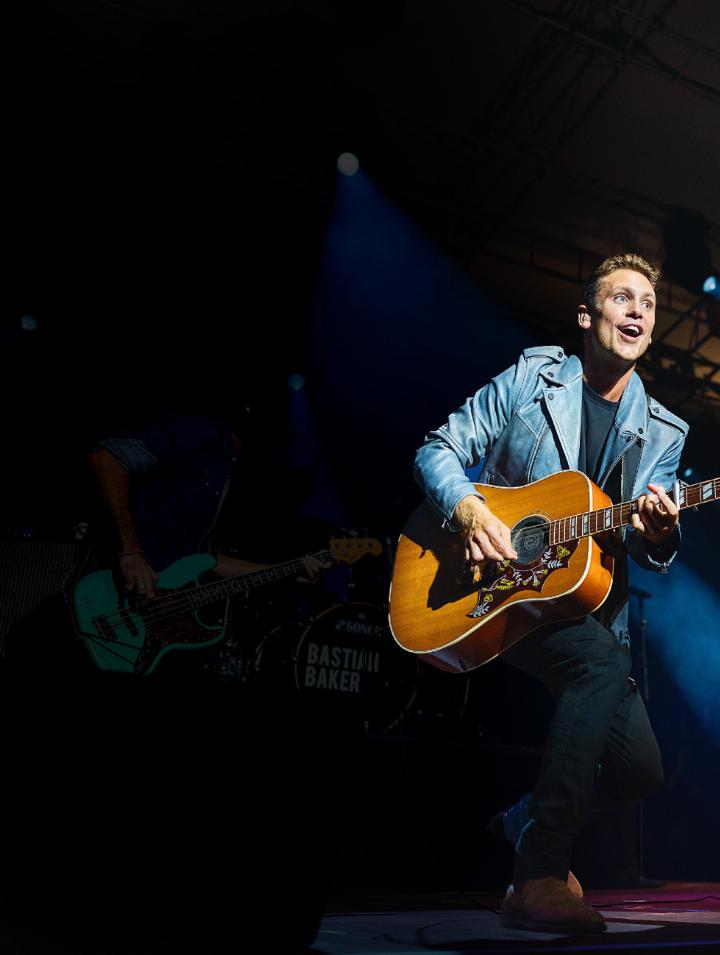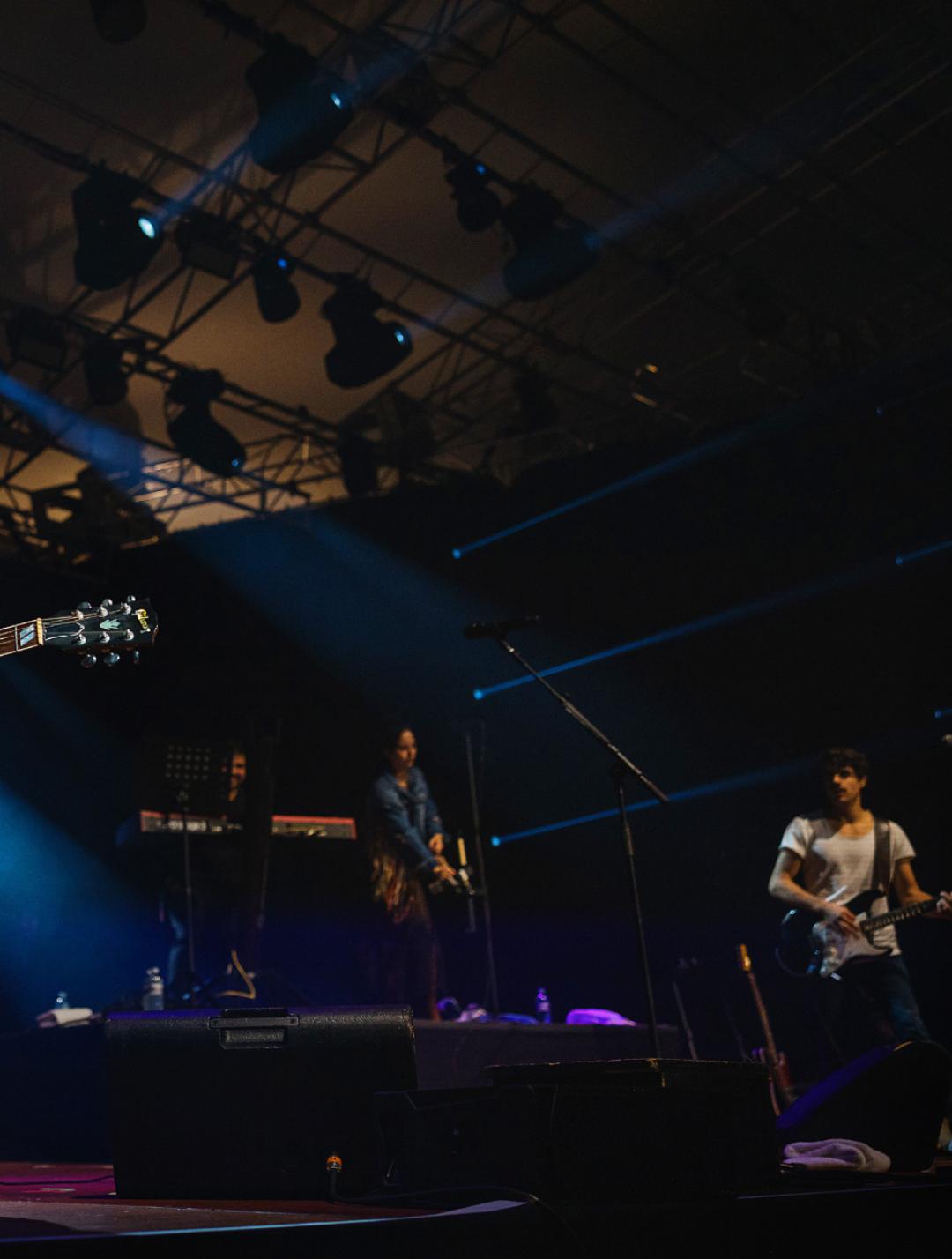Country Road - Country Night comes to Gstaad
08.09.2023 Arts & Culture, Editors Picks, ConcertsCountry music originated in the folk sound of rural southern and western United States. Characterised by twangy guitars, fiddles, banjos, simple melodies and melancholy ballads, it’s growing in popularity the world over. And for 34 years, this country road has also led to ...
Country music originated in the folk sound of rural southern and western United States. Characterised by twangy guitars, fiddles, banjos, simple melodies and melancholy ballads, it’s growing in popularity the world over. And for 34 years, this country road has also led to Gstaad.
But why is the sound of country so popular in Switzerland, dealing as it does with tales of lonely cowboys, love gone wrong and hard-drinking at the local saloon? Last time I looked, there was not much of that in the Alps. But scratch the surface, and we see striking similarities with old Swiss folk music: tales of working-class hardship set to simple chords, played on whatever instruments were to hand, passed down through the generations by word of mouth. This is a style of music that celebrates and captures the experience of life in local communities.
Infectious sound
It’s also the genre where many internationally acclaimed artists with megawatt careers first developed their craft. Take Elvis Presley and Taylor Swift. Long before Elvis was thrusting his rock ’n’ roll hips to Hound Dog or Taylor boppily encouraging us to “shake it off”, these artists started out in country.
This crossover trend continues. While folk music may be broader than just country, these days it can be hard to tell whether country is still, well, country. With many mainstream country artists incorporating elements of pop or even rock – complete with complicated melodies, large orchestras and big sounds – into their act, it seems (as Alan Jackson sang) to be “a work in progress”. With amazing effect.
Because it’s undeniable that country is a global success and growing in popularity among different age groups and demographics. It’s not hard to see why. However musically inclined you may be, country will soon have you tapping your feet and humming along to a catchy-chorus. For country has an infectious sound that draws you in.
It takes a village
And it’s this sense of welcome and excitement that we see year after year at Gstaad Country Night. Thanks to the work of the festival organising committee and hundreds of helpers in local supporting organisations, every early September the village is teeming with Stetsons, cowboy boots and blue jeans.
But the festival would be nothing without popular country artists to draw in the crowds. No wonder one-third of the event budget is allocated to sourcing talent – and the role of attracting prominent performers falls to Marcel Bach. He and the team also make sure the artists are well-treated in the Saanenland, which, in turn serves to organically advertise the festival around the world. By word of mouth. Just as the early folk tunes were passed down the generations.
ANNA CHARLES
In conversation with Marcel Bach
Property developer Marcel Bach is the man responsible for the line-up at Country Night Gstaad. GstaadLife grabbed a few moments in his busy schedule to learn more.
What inspired you to establish Country Night Gstaad?
When we started the festival there was only classical music in Gstaad and we thought it would be a good idea to start something different. At the time we had a country singer at the Rialto and people loved him, therefore after a few drinks we decided to start a festival.
You have seen the festival throughout the years, both in terms of artists and audience. What are your memories of the first festival?
We were lucky to have a great start in 1989 with Loretta Lynn and Conway Twitty as headliners. They were then absolute superstars and still are to this day legends.
Country music as a genre is closely connected to folk music and the telling of tales; is this why the Swiss audience connects so strongly with the genre?
I think in the old days a lot of Swiss were obliged to seek work in the States and this created a strong bond between the two countries and of course also the music itself.
The festival is celebrating its 34th year – why do you think it’s so popular? Is it the music, the song writing, the “vibe”, the community?
I think it’s a bit of all of the above. It’s a festival for everybody, for the young, the elderly and all social classes. It’s fun for everybody.
It seems as though the overall age of the audience at a country festival is quite “mature” – is that a fact or are younger people becoming more interested?
It may appear this way however a lot of younger people are also into country music as some of the music is very close to rock and blues. In addition, line dancing made it more popular for the younger people.
Country music is a huge phenomenon, but it’s more naturally associated with America than Europe. Have you seen an increase in European country artists, too?
Country music is also big in Europe, especially in Ireland where a lot of the country music has its roots, as well as England.
Evolution is the way for a festival to stay alive or at least current. How do you see the future of Country Night Gstaad?
As long as it remains popular and people continue to enjoy it, we will carry on.
The festival attracts top country performers of all ages and genres. How much are you involved in the musical program, choice of artist, etc.?
It’s my responsibility to organize the line-up.
Which artist would you love to have (re)perform at the festival?
There are a lot of names that come to mind of course, George Strait, Alan Jackson, Lady Antebellum, Willie Nelson, Dolly Parton, just to name a few.
The 34th Gstaad Country Festival runs from 8–9 September 2023.
For more information and to stay in the loop:





